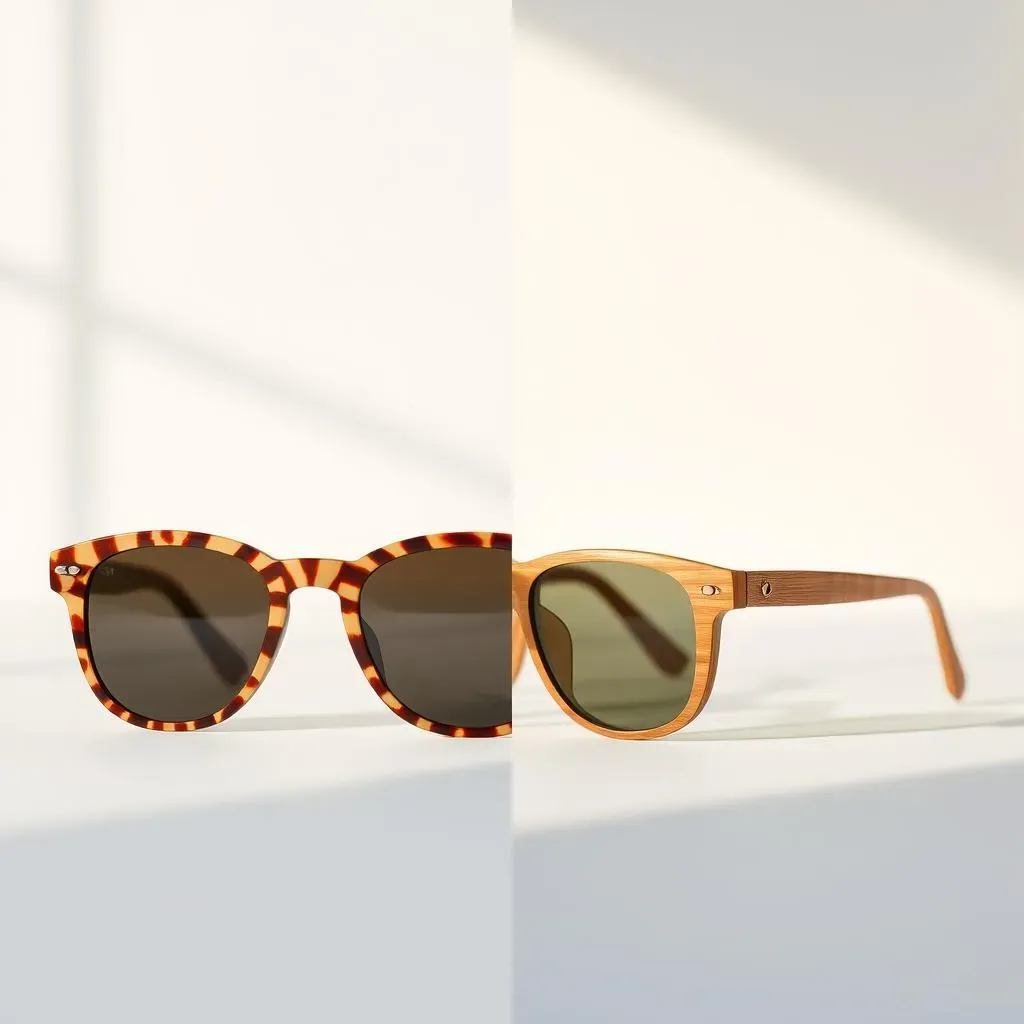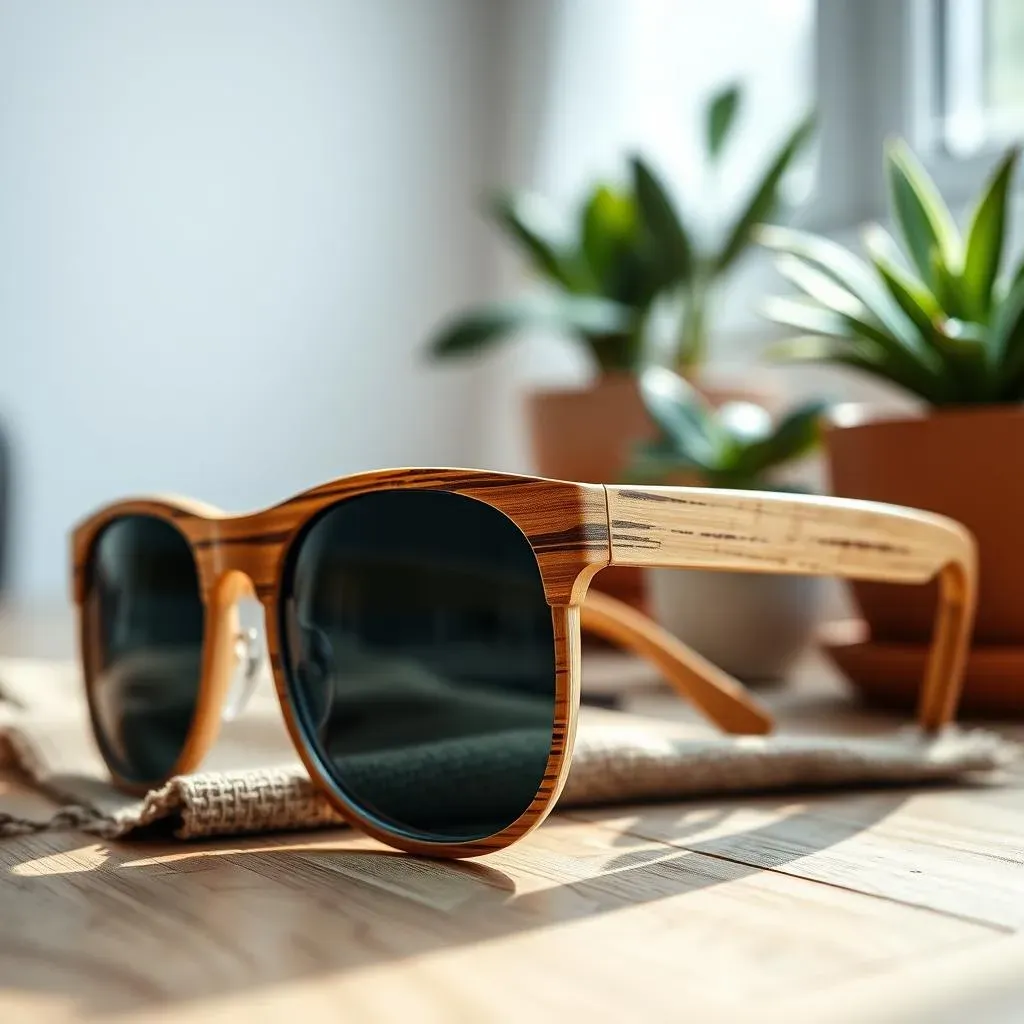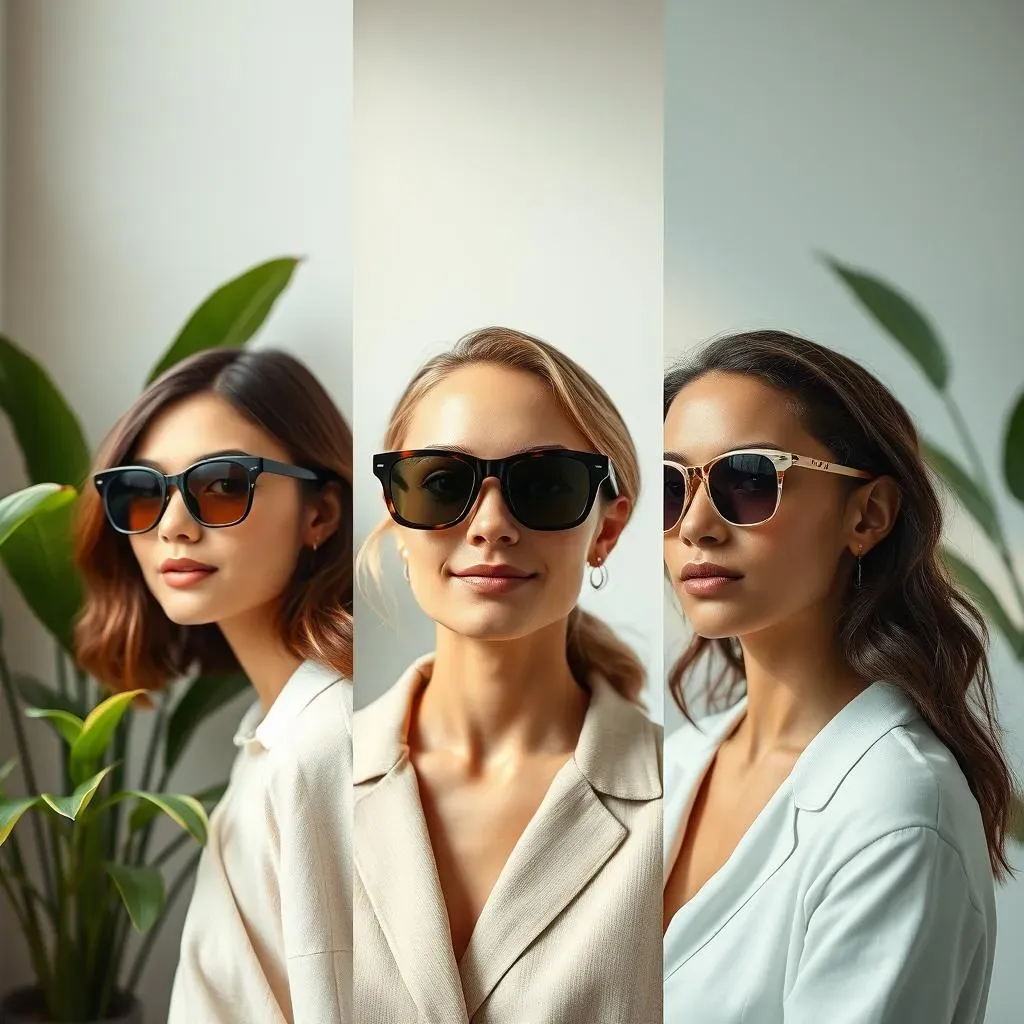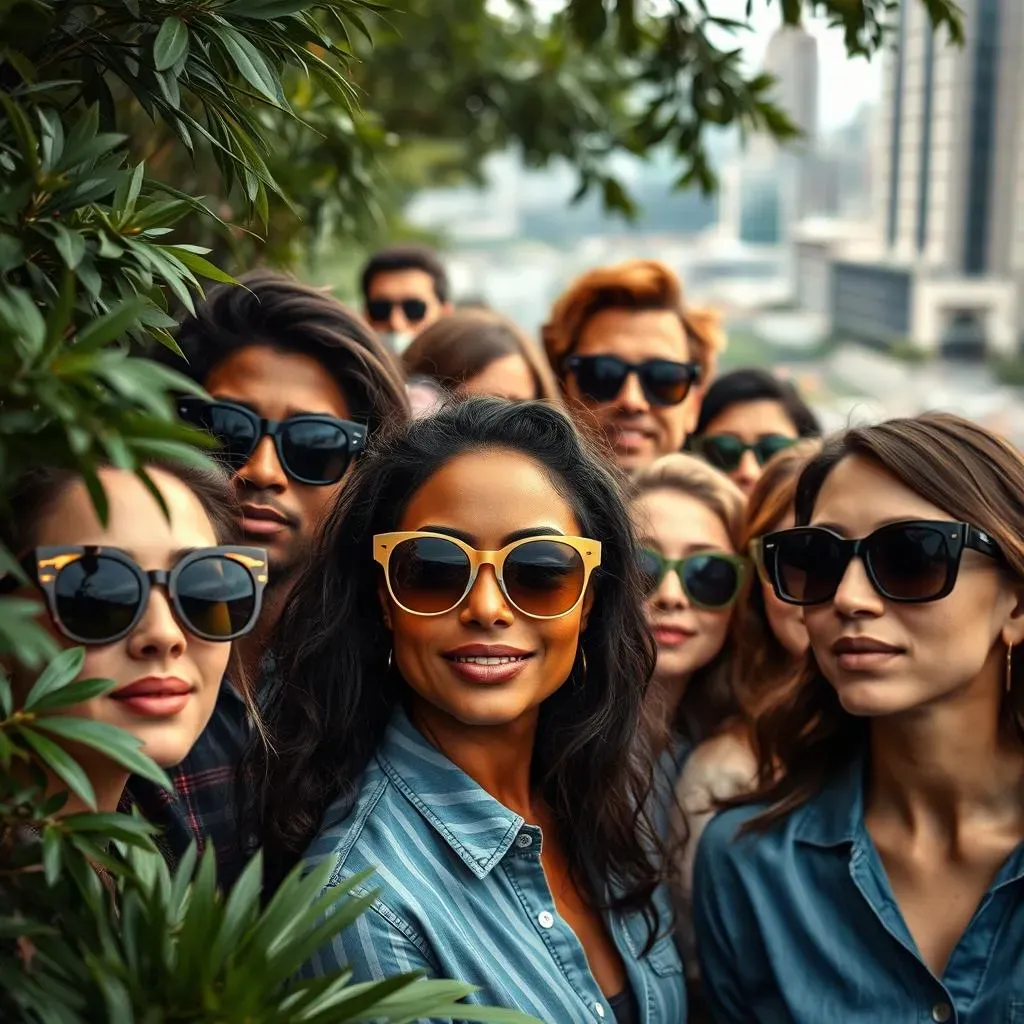Table of Contents
As consumers become increasingly aware of the environmental and social impact of their purchasing decisions, the demand for sustainable and responsible products is on the rise. The fashion industry, in particular, has come under scrutiny for its contribution to waste and pollution. However, there are companies that are leading the way in ethical and eco-friendly practices, and the eyewear sector is no exception. Ethical sunglasses companies are revolutionizing the way we think about fashion and sustainability. In this article, we will explore what makes these companies stand out, the sustainable materials they use, and the positive impact they have on the environment. We will also highlight some of the top ethical sunglasses companies to watch in 2025, making it easier for you to make informed choices when it comes to your eyewear. By choosing ethical sunglasses companies, you are not only protecting your eyes but also contributing to a more sustainable future.
What Makes Ethical Sunglasses Companies Stand Out
What Makes Ethical Sunglasses Companies Stand Out
Commitment to Sustainability
Ethical sunglasses companies are leading the way in sustainable fashion by prioritizing environmental responsibility. These companies recognize the impact of the fashion industry on the planet and are taking steps to reduce their ecological footprint. From using recycled materials to implementing eco-friendly manufacturing processes, these brands are committed to minimizing waste and reducing their carbon footprint.
One of the key factors that set ethical sunglasses companies apart is their use of sustainable materials. Instead of relying on virgin plastics, they opt for recycled plastics, bamboo, or bio-acetate. For example, some brands use repurposed skateboard decks or FSC-certified wood to create unique and stylish frames. This not only reduces the amount of waste in landfills but also helps to conserve natural resources.
Material | Benefits | Examples |
|---|---|---|
Recycled Plastic | Reduces waste, conserves natural resources | Proof Eyewear, Stella McCartney |
Bamboo | Sustainable, lightweight, durable | Kampos, Armedangels |
Bio-acetate | Biodegradable, hypoallergenic | Warby Parker, Zenni Optical |
Transparency and Fair Labor Practices
Ethical sunglasses companies also prioritize transparency and fair labor practices. They ensure that their supply chains are free from exploitation and that workers are paid a fair wage. This commitment to ethics extends to their business practices, with many companies adopting the ETI Code of Conduct or similar guidelines to ensure responsible sourcing and production.
Consumers are becoming increasingly aware of the importance of ethical fashion, and ethical sunglasses companies are responding by providing clear information about their practices. By choosing these brands, consumers can trust that their purchases are supporting fair labor conditions and environmentally responsible practices.
- Look for certifications like Fair Trade or B Corp
- Check the company's website for transparency reports
- Research the brand's supply chain and labor practices
Sustainable Materials Used by Ethical Sunglasses Brands
Sustainable Materials Used by Ethical Sunglasses Brands
Eco-Friendly Alternatives to Traditional Materials
Sustainable sunglasses companies are pioneering the use of eco-friendly materials that reduce their environmental impact. One of the most significant ways they achieve this is by replacing traditional materials like plastic with innovative, eco-friendly alternatives. For instance, some brands use recycled plastic, which reduces the amount of waste in landfills and conserves natural resources.
Another material gaining popularity is bamboo. Bamboo is not only sustainable but also lightweight and durable, making it an ideal choice for sunglasses frames. Brands like Kampos and Armedangels are already incorporating bamboo into their designs, offering stylish and eco-friendly options for consumers.
Material | Benefits | Brands Using |
|---|---|---|
Recycled Plastic | Reduces waste, conserves resources | Proof Eyewear, Stella McCartney |
Bamboo | Sustainable, lightweight, durable | Kampos, Armedangels |
Bio-Acetate | Biodegradable, hypoallergenic | Warby Parker, Zenni Optical |
Innovative Use of Upcycled Materials
Some ethical sunglasses companies are taking sustainability a step further by incorporating upcycled materials into their designs. For example, Proof Eyewear uses repurposed skateboard decks to create unique and stylish frames. This approach not only reduces waste but also adds a touch of individuality to each pair of sunglasses.
Upcycling is a creative way to breathe new life into materials that would otherwise end up in landfills. By choosing sunglasses made from upcycled materials, consumers can make a statement while supporting sustainable fashion.
- Repurposed skateboard decks
- Recycled fishing nets
- Reclaimed wood
The Impact of Fast Fashion on the Environment and How Ethical Sunglasses Companies Are Making a Difference
The Impact of Fast Fashion on the Environment and How Ethical Sunglasses Companies Are Making a Difference
Environmental Consequences of Fast Fashion
Fast fashion has become a major contributor to environmental degradation. The rapid production and disposal of cheap, trendy clothing and accessories result in massive amounts of waste. Sunglasses, in particular, are often made from non-biodegradable plastics that end up in oceans and landfills. The fashion industry is the second-largest polluter in the world, with the production and distribution of clothing and accessories contributing to greenhouse gas emissions, water pollution, and soil degradation.
The environmental impact of fast fashion is alarming. For instance, the average American generates 82 pounds of textile waste per year, with the majority ending up in landfills. Furthermore, the extraction, processing, and transportation of raw materials for fashion products contribute to greenhouse gas emissions. Ethical sunglasses companies recognize these issues and are working to reduce their environmental footprint.
The Role of Ethical Sunglasses Companies in Mitigating Fast Fashion's Impact
Ethical sunglasses companies are at the forefront of reducing the environmental impact of the fashion industry. By prioritizing sustainability, these brands are setting a new standard for responsible production and consumption. They achieve this through the use of eco-friendly materials, reducing waste, and promoting recycling.
For example, companies like Stella McCartney and Proof Eyewear are using recycled materials in their products. Stella McCartney's sunglasses are made from recycled polyester, while Proof Eyewear uses repurposed skateboard decks to create unique frames. These innovative approaches not only reduce waste but also appeal to consumers looking for sustainable products.
- Use of recycled materials
- Implementation of sustainable manufacturing processes
- Partnerships with environmental organizations
"The fashion industry has the power to be a positive force for change. At Stella McCartney, we're committed to reducing our environmental impact through sustainable practices and innovative materials." - Stella McCartney
Consumer Choices and the Future of Sustainable Fashion
As consumers become more aware of the environmental and social impact of their purchasing decisions, the demand for sustainable products is increasing. Ethical sunglasses companies are responding by providing stylish, eco-friendly options that appeal to the conscious consumer.
By choosing sustainable sunglasses, consumers can contribute to a reduction in waste and support brands that prioritize the environment. Additionally, buying second-hand or recycled sunglasses is another way to reduce the demand for new, resource-intensive products.
Benefits of Sustainable Sunglasses | Environmental Impact | Consumer Benefits |
|---|---|---|
Reduced waste | Less pollution in oceans and landfills | Unique, stylish designs |
Conservation of resources | Reduced greenhouse gas emissions | Supports fair labor practices |
Promotes recycling and upcycling | Decreased water pollution | Access to eco-friendly products |
Top Ethical Sunglasses Companies to Watch in 2025
Top Ethical Sunglasses Companies to Watch in 2025
Stella McCartney: A Pioneer in Sustainable Luxury
Stella McCartney is a well-known luxury fashion brand that has been at the forefront of sustainable and ethical practices. Their sunglasses are made from recycled materials, such as recycled polyester, and are designed to be both stylish and environmentally friendly.
Stella McCartney's commitment to sustainability extends beyond their products. They have implemented a supplier code of conduct and a restricted substances list to ensure that their supply chain is transparent and responsible. This dedication to ethics has earned them a reputation as one of the most sustainable luxury brands in the industry.
Brand | Sustainable Features | Price Range |
|---|---|---|
Stella McCartney | Recycled polyester, eco-friendly packaging | $195-$390 |
Proof Eyewear: Sustainable Style with a Purpose
Proof Eyewear is an Idaho-based brand that specializes in sustainable sunglasses. They use FSC-certified wood, cotton-based acetate, and repurposed skateboard decks to create unique and stylish frames. Proof Eyewear also partners with nonprofits and conservation organizations, donating a portion of their proceeds to support environmental causes.
Proof Eyewear's commitment to sustainability is evident in their use of eco-friendly materials and their efforts to reduce waste. Their sunglasses are not only stylish but also environmentally responsible, making them a great choice for consumers who prioritize sustainability.
- Materials: FSC-certified wood, cotton-based acetate, repurposed skateboard decks
- Partnerships: Nonprofits and conservation organizations
- Price: $85-$120
Kampos: Bamboo Sunglasses for a Sustainable Future
Kampos is a brand that specializes in bamboo sunglasses. Bamboo is a highly renewable resource that is both sustainable and durable, making it an ideal material for eyewear. Kampos' sunglasses are not only eco-friendly but also stylish, with a range of designs to suit different tastes.
Kampos' commitment to sustainability extends beyond their products. They prioritize fair labor practices and ensure that their supply chain is transparent and responsible. By choosing Kampos, consumers can trust that their purchase is supporting a brand that values both the environment and social responsibility.
"At Kampos, we believe that style and sustainability go hand-in-hand. Our bamboo sunglasses are designed to be both fashionable and eco-friendly, making it easy for consumers to make a positive impact with their purchasing decisions." - Kampos Founder
Embracing Sustainability in Eyewear: The Future of Fashion
In conclusion, the world of eyewear is evolving, and ethical sunglasses companies are at the forefront of this change. By choosing sustainable materials, reducing waste, and promoting fair labor practices, these companies are redefining the fashion industry's impact on the planet. As consumers, we have the power to drive this movement forward by supporting ethical sunglasses companies. Not only will you be protecting your eyes with high-quality, UV-resistant lenses, but you'll also be contributing to a more environmentally conscious and socially responsible fashion industry. Join the movement towards sustainable style and explore the top ethical sunglasses companies featured in this article. Together, we can create a brighter, more sustainable future for generations to come.
